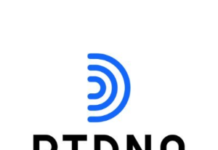
In a landmark decision with massive implications for radio, the Federal Trade Commission has issued a final rule to ban noncompete agreements nationwide in a 3-2 vote., under the auspices of bolstering competition, innovation, and new business creation.
Under the new regulation, existing noncompete clauses will become unenforceable for most workers 120 days after the rule’s publication in the Federal Register, with an exception for less than 0.75% of workers who are senior executives, defined as anyone earning over $151,164 and in policy-making roles. Employers are prohibited from forming or enforcing new noncompetes with these executives.
The rule simplifies compliance by eliminating the requirement for employers to formally rescind existing noncompetes; instead, employers must notify affected workers that their noncompetes will not be enforced going forward.
What Does This Mean For Radio?
Radio Ink asked Frank Montero of Fletcher, Heald & Hildreth to shine some light on what this decision means for both talent and management:
“The FTC’s rule banning most employee noncompetes, other than those with some senior executives, continues a state law trend to ban noncompetes in the entertainment industry lobbied for by SAG-AFTRA in past decades, as well as the FCC’s own limitation on the scope and duration of noncompetes in broadcasting transactions.”
“However, the FTC’s dissenting Commissioners questioned whether the agency had the authority to issue such a blanket ban on noncompetes without an express directive from Congress. Although bills to reform noncompete agreements have been introduced into Congress, none of them has been enacted. The FTC dissenters argued that without a valid grant of authority from Congress, the final rule is unlawful. The retroactive nature of the ban adds further legal issues. It remains to be seen how the new FTC rule will fare in court. It is sure to face strong opposition.”
“For broadcasters, this will add to the FCC and state limitations, further tightening the noose around permissible noncompetes. Although the exemption for senior executives could leave a large opening. Frequently in broadcast sale transactions, noncompetes are imposed on the prior owners to prevent them from purchasing new stations and competing against the new owners in the market, subject to the FCC’s duration and scope limits. Employee noncompetes usually appear in employment agreement and would be directly impacted.”
“I have seen various efforts to work around noncompetes, including limiting the ability of employees to take intellectual property claimed by the former employer and developed while the employee was still employed. Contracts also limit the ability of former employees to raid company client lists and other company employees. Regardless, this ruling will shake up the industry. The battle is not over yet.”
Radio Reacts To The Vote
This decision follows a public comment period where the FTC says it received overwhelmingly positive feedback in favor of the ban, and the reaction was similar when Radio Ink floated the vote on our social media pages.
Marie LeMaitre, founder of talent advocacy collective The Radio Fam, told Radio Ink, “As someone who advocates for radio personalities, this makes me very happy. Nobody should be denied earning an income as a result of companies who are more interested in an ego measuring contest.”
Denver Radio Personality Nina Blanco told us, “It finally feels like our radio voices off-air are being heard. Non-competes have negatively impacted lives of radio personalities who are just trying to make a living doing what they love. This has been a long time coming and I hope voters do the right thing in banning non-competes.”
Let your voice be heard: email Online Editor Cameron Coats or find Radio Ink on Instagram or Facebook to weigh in.










So now I Heart cant fire someone and STILL enforce the non compete even tho said screwed over person still has to work to support their family??
About time.
So are you saying the “Frankie and Johnny in the morning” can just mover over to a same market competitor from one week to another?
This would give back some leverage to Radio Talent.
Recently SCOTUS issued a ruling on one of the major agencies like the FTC, or FDA etc., that basically said they can’t change the law with their policies or rules. That agency was never authorized to issue edicts that have fines or jail time as punishment. That’s for congress. Of course, this was a big deal because all agencies have done this forever. There’s no jail time in this FTC thing, although possibly fines. But there’s certainly damages. So, ultimately some company is going to challenge this. Likely a big company where some heavy CEO or Exec VP with big knowledge of inner workings wants to start their own company or jump ship. Then, chances are, that ruling will likely nullify this FTC decision too.
You can now leave one 30k job for another, right down the street. Awesome.
Copyright laws one angle. If the station employs Francesca and Jonathan to do a morning show promoted as “Frankie and Johnny in the morning” they could copyright the show name.
Then if the two announcers left for another station in the market they couldn’t use that show title nr any related promotional “trade dress” established over the years.
I suspect the FTC regulations will be overturned, leaving non-competes a state law issue.
Two different things. They can continue to work under different names. It’s not unusual.